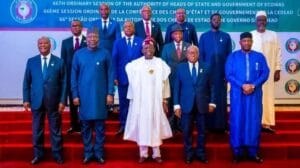The Kennedy Center’s board made a major decision on Wednesday afternoon. They voted unanimously to appoint former President Donald Trump as its new chair. According to multiple sources who spoke to CBS News, this move is part of Trump’s effort to reshape the center’s leadership and artistic direction. His goal is to move away from what he considers “woke culture.”
Changes in Leadership
One board member, Jacqueline Mars, was present during the vote but did not participate, a source revealed. Just last week, Trump announced his plan to remove the current chairman and board of trustees. He also made it clear that he intended to take over as chairman himself. Following this announcement, the White House started appointing new board members to fill vacant positions, sources said.
The newly appointed members include White House officials, family members of administration figures, donors, and their spouses. According to the Kennedy Center’s website, some of the new board members are:
- Usha Vance – Second Lady of the United States
- Susie Wiles – White House Chief of Staff
- Cheri Summerall – Wiles’ mother
- Dan Scavino – White House Deputy Chief of Staff for National Security
- Sergio Gor – White House Director of Presidential Personnel
- Allison Lutnick – Wife of Commerce Secretary nominee Howard Lutnick
- Pamela Gross – Former White House Adviser to the First Lady
- Patricia Duggan – A major donor
- Emily May Fanjul – Wife of Trump donor and sugar magnate Pepe Fanjul
- The wives of Robert Kraft and Randy Levine – CEOs of the New England Patriots and New York Yankees, respectively
During the meeting, Trump joined via telephone and presented his vision for the Kennedy Center. The board also voted to remove Deborah Rutter, who had been the center’s president since 2014. Although she had previously announced her plans to step down in 2025, the board decided to accelerate her departure. Rutter was present at the meeting when this decision was made.
Quiet Reshuffling of the Board
This week, the White House began appointing new board members without making any public announcements. However, some existing members are expected to stay, sources indicated.
One key figure in this transition is Ric Grenell, a strong Trump ally. Initially, he was set to serve as an interim executive director, but two sources said his role was expected to be brief. However, the board made a surprising decision on Wednesday by naming Grenell as the new president, officially replacing Rutter.
Another major change involved David Rubenstein, a philanthropist and co-founder of the Carlyle Group. He had led the Kennedy Center’s board for 14 years and had planned to step down in September 2026. Instead, the White House decided to remove him immediately.
Shifting Away from “Woke” Programming
Trump has expressed concerns that the Kennedy Center has become too focused on “woke culture.” While he intends to introduce changes, some performances will still proceed as planned. For example, a scheduled performance of Haydn’s “Creation,” based on the biblical creation story, will still be performed by the Choral Arts Orchestra and Symphonic Chorus, one source stated.
The variety of performances—including theater, music, singing, and dance—will continue. However, Trump wants the programming to reflect what he considers a broader and more balanced audience, rather than appealing to only one side of the political spectrum, a source explained.
Additionally, some content from the Kennedy Center’s website is expected to be removed. One example is the statement that acknowledges the center is “standing on the traditional land” of the Nacotchtank and Piscataway tribes.
Trump’s Longstanding History with the Kennedy Center

Trump’s relationship with the Kennedy Center has been strained for years. In 2017, when he was president, he and First Lady Melania Trump chose not to attend the Kennedy Center Honors. This decision came after several award recipients that year threatened to boycott the event.
Concerns Over Fundraising
The White House has also raised concerns about the Kennedy Center’s fundraising efforts. Two sources indicated that, despite having dozens of people on the fundraising team, the center raised just over $90 million last year. Meanwhile, the federal government contributed about $45 million. The rest of the center’s budget came from ticket sales and other revenue sources.
The Kennedy Center’s Role and Legacy
According to its website, the Kennedy Center hosts over 2,200 performances, events, and exhibits each year. More than two million people visit the center annually. Congress established the Kennedy Center in 1958 as a “living memorial” to President John F. Kennedy.
The board of trustees includes 36 members appointed by the president, along with ex-officio government officials designated by Congress.
Trump’s appointment as chairman signals a major shift in leadership and artistic direction at the Kennedy Center. With a new board, a change in programming, and a focus on reshaping the center’s cultural identity, the former president is leaving a lasting mark on the institution. Whether these changes will be embraced or met with resistance remains to be seen.




